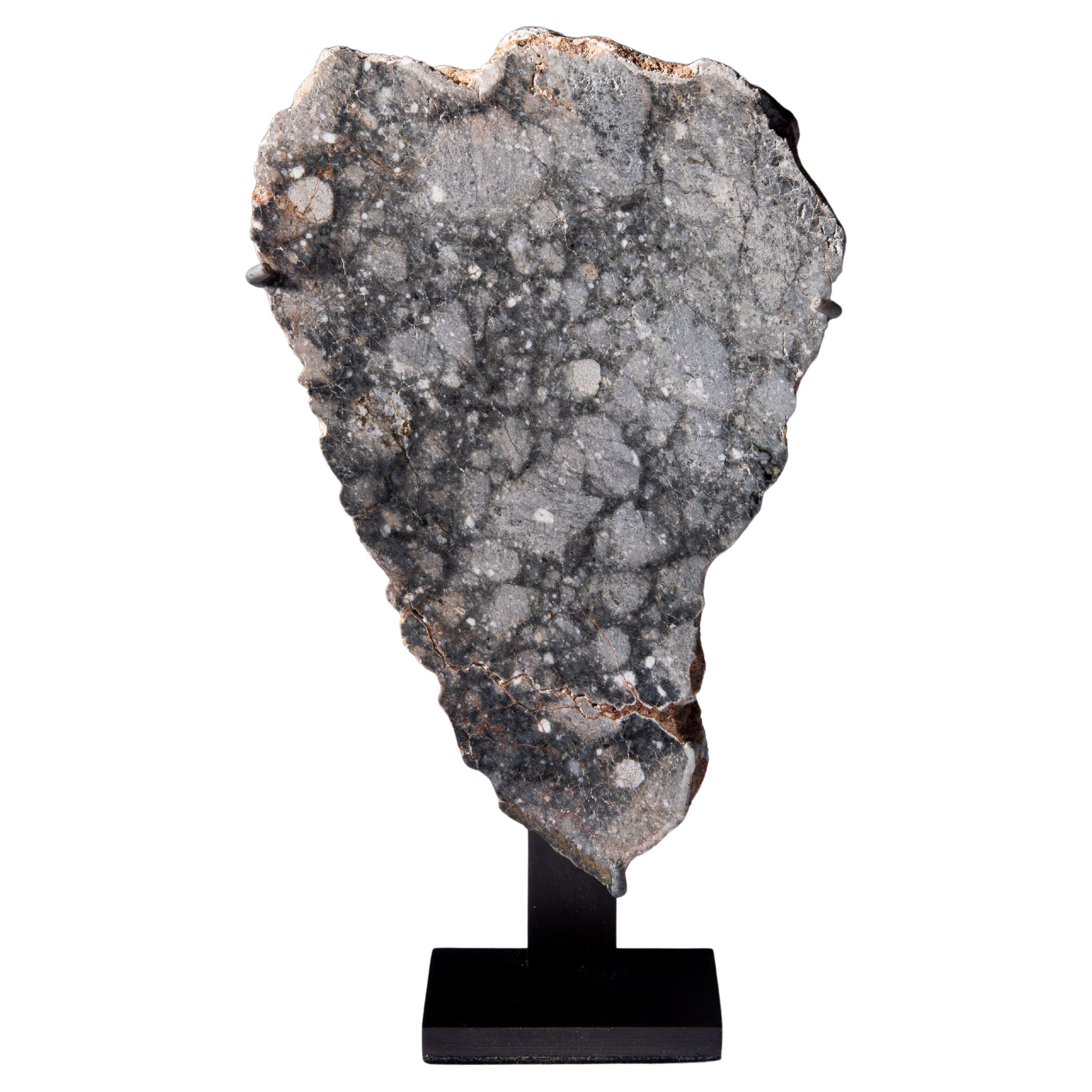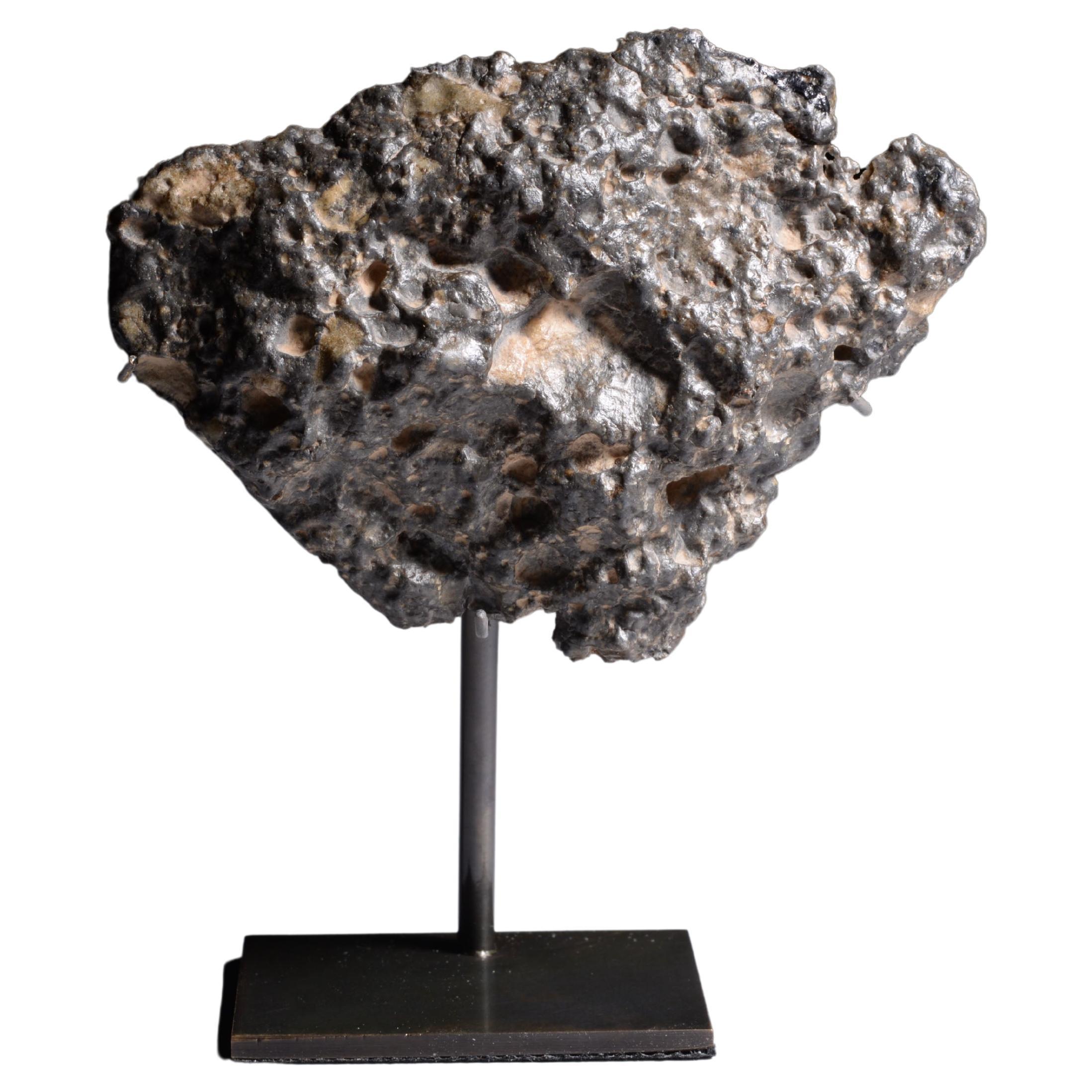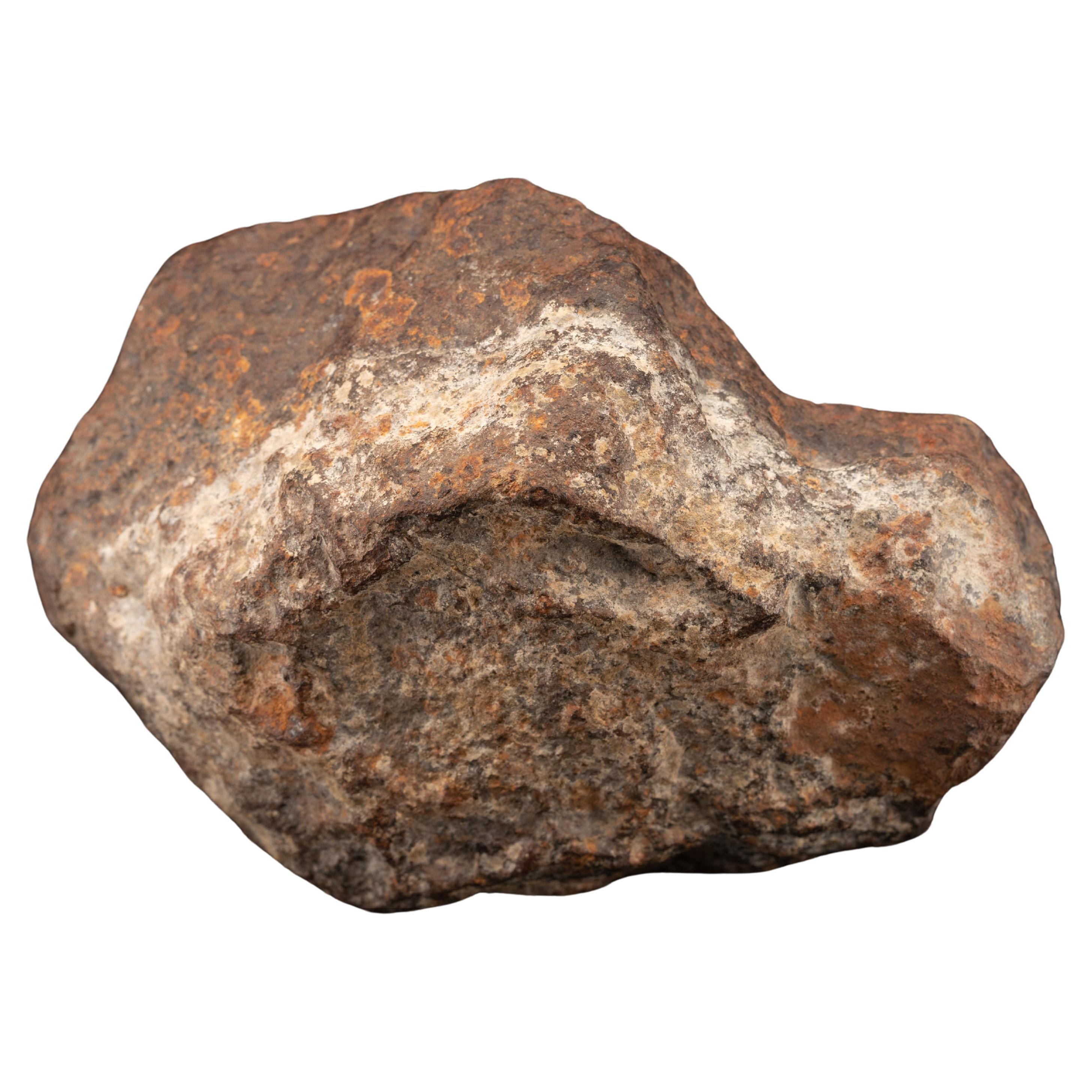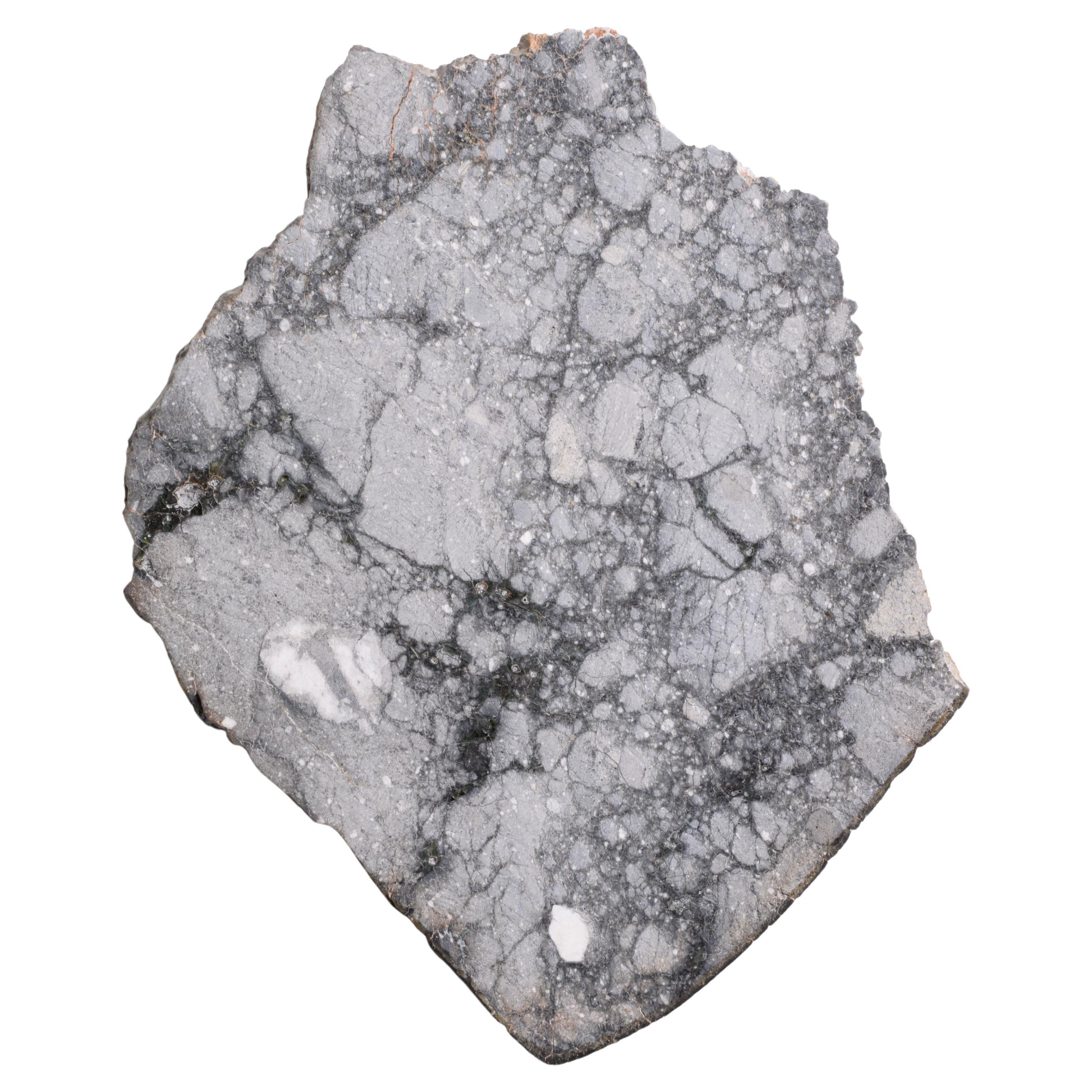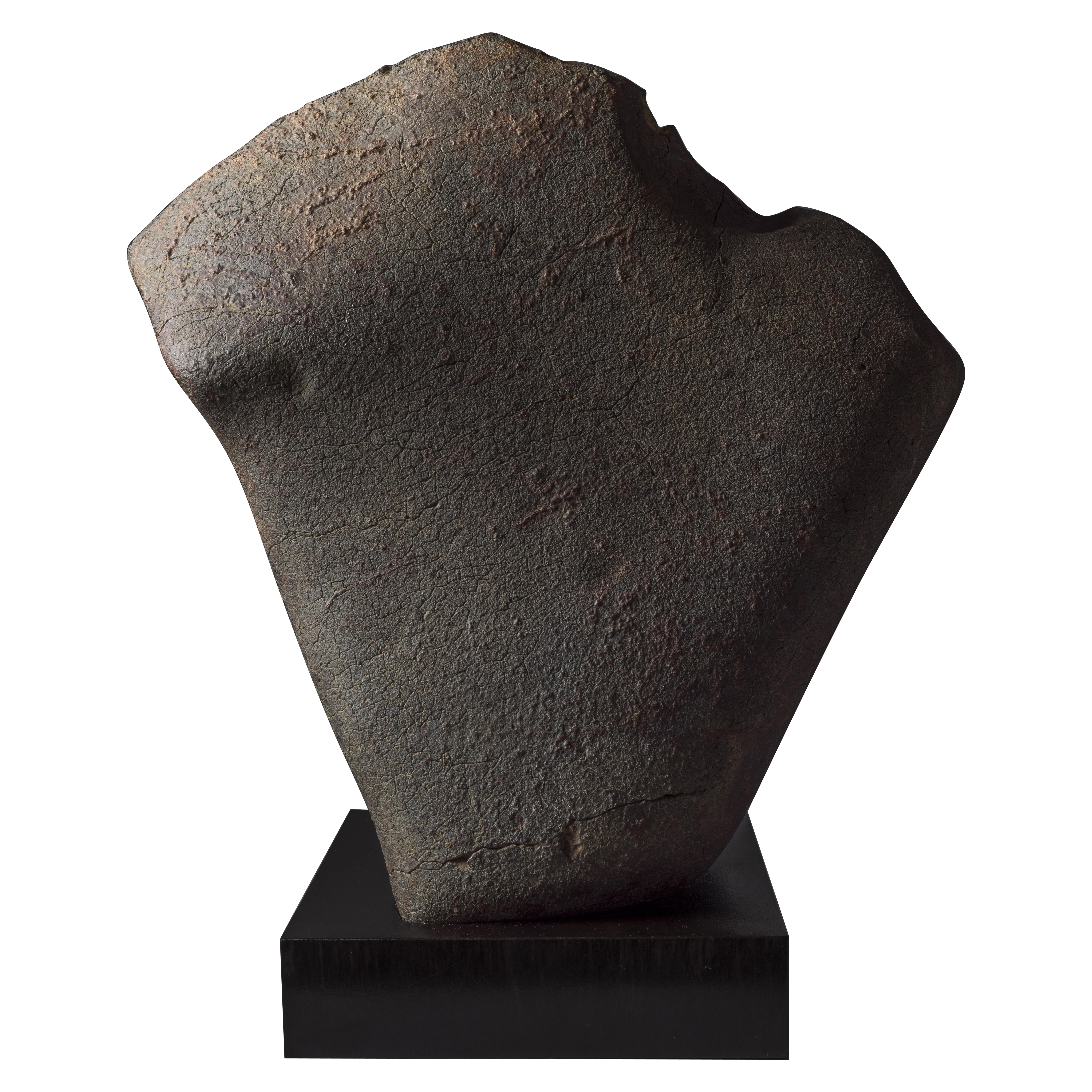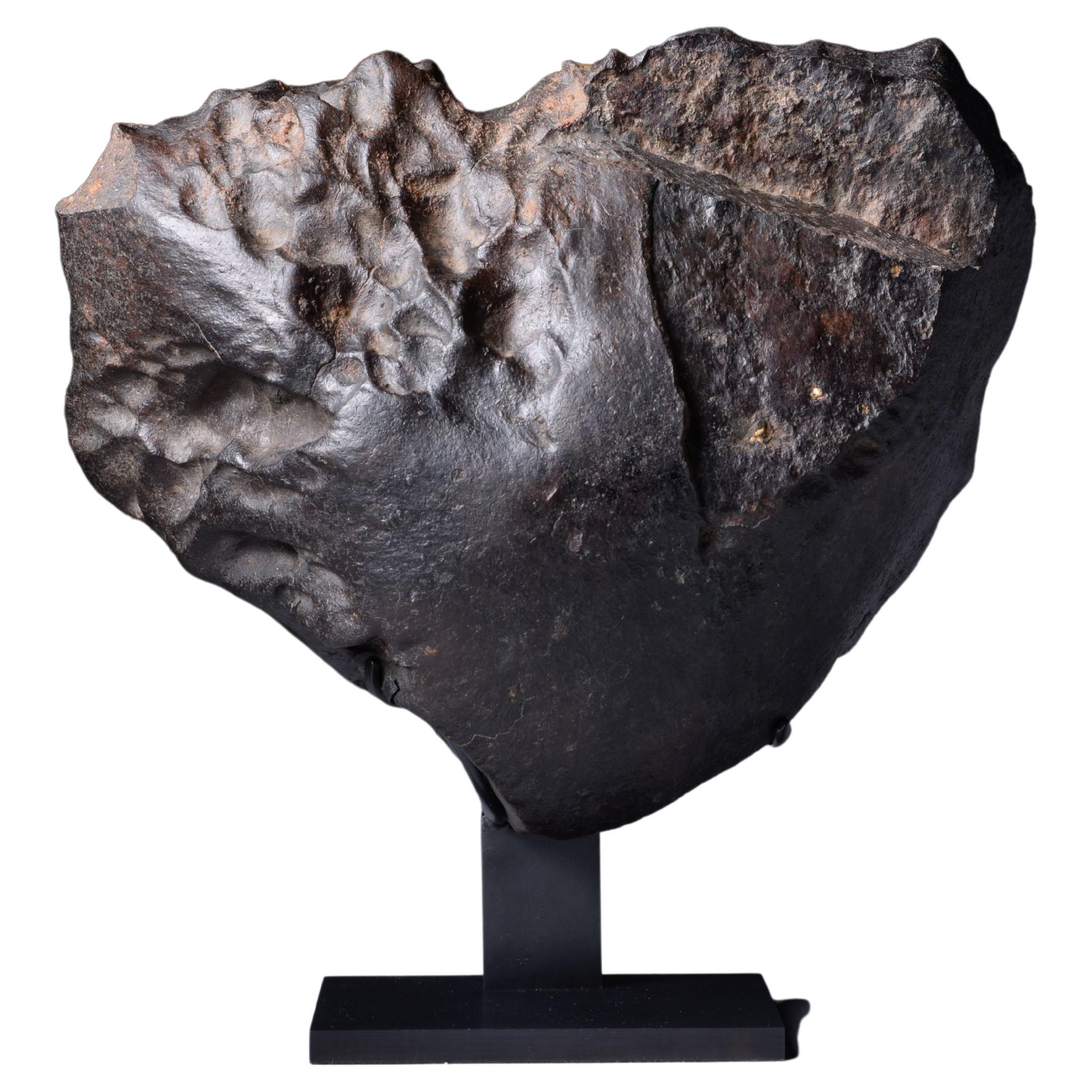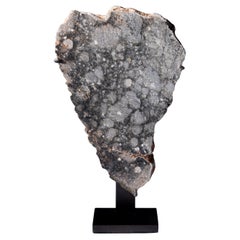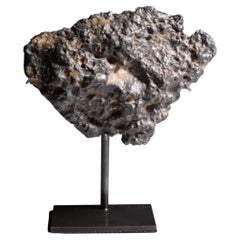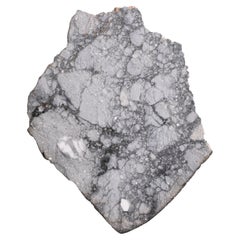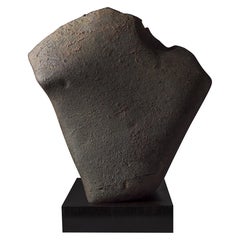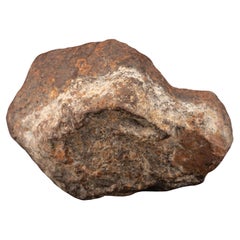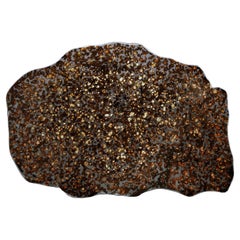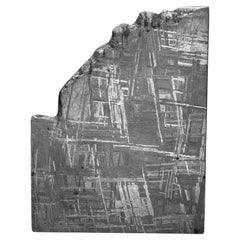Items Similar to A Piece of Mars - Martian Meteorite
Video Loading
Want more images or videos?
Request additional images or videos from the seller
1 of 7
A Piece of Mars - Martian Meteorite
About the Item
MARTIAN STONE - NWA 14713
Lherzolitic shergottite
127 g
“This 127-gram fragment of the NWA 14713 meteorite displays a green-black mottled exterior. The rock is a martian shergottite (a basalt) composed mainly of coarse grains of pyroxene as well as calcium-plagioclase glass. This glass, called maskelynite, formed from crystalline plagioclase when the specimen was blasted off the surface of Mars by an energetic collision. There are currently less than 350 known martian meteorites with an aggregate weight of only a few hundred kilograms.”
Dr Alan E. Rubin, PhD Department of Earth, Planetary, and Space Sciences, UCLA
Ejected from Mars by an enormous impact, this extra-terrestrial rock journeyed through space before landing in the Northwest African desert. This exceptional slice has been prepared to reveal the Martian stone’s stunning mottled interior, with contrasting light and dark coloured crystals.
Martian meteorites are exceedingly rare. As of today, about 175 meteorites on Earth have been classified as Martian, out of more than 50,000 known meteorites. Three quarters of these are shergottites. These truly fascinating celestial bodies appear to have crystallised surprisingly recently, perhaps around 180 million years ago, which sharply contrasts with the planet’s small size and how ancient its surface is thought to be. This phenomenon, known as the "Shergottite Age Paradox", has never been solved and remains an active area of scientific research and debate.
Height: 17.14 cm (6.75 inches)
Provenance:
Discovered in Northwest Africa (exact coordinates unknown).
Published:
Meteoritical Bulletin, no. 111 (2022).
ArtAncient, Extraterrestrial (2022).
Petrography:
(A. Ross, UNM; D. Dickens, NMMS; C. Agee, UNM) Examination of a polished microprobe mount and image analysis using ImageJ shows ~25% igneous-zoned olivine, ~35% igneous-zoned pyroxene and ~35% maskelynite, with opaques making up the remainder. Chromite, ilmenite, merrillite, and troilite were detected.
Geochemistry:
(A. Ross, UNM) Olivine Fa35.4±2.8 Fe/Mn=49±3, n=10; Pigeonite Fs25.7±3.2Wo9.2±2.4, Fe/Mn=29±2, n=8; augite Fs16.5±1.0Wo34.6±1.3, Fe/Mn=26±3, n=3; plagioclase An54.8±1.2Ab43.9±1.2, Or 1.3±0.2, n=5.
- Dimensions:Height: 6.86 in (17.4 cm)Width: 5.91 in (15 cm)Depth: 0.04 in (1 mm)
- Materials and Techniques:
- Place of Origin:
- Period:
- Date of Manufacture:Approx. 180 Million y/o
- Condition:
- Seller Location:London, GB
- Reference Number:Seller: 430141stDibs: LU1052231715412
About the Seller
5.0
Recognized Seller
These prestigious sellers are industry leaders and represent the highest echelon for item quality and design.
Established in 2008
1stDibs seller since 2014
100 sales on 1stDibs
Typical response time: 2 hours
Associations
LAPADA - The Association of Arts & Antiques DealersInternational Confederation of Art and Antique Dealers' AssociationsThe British Antique Dealers' Association
- ShippingRetrieving quote...Shipping from: London, United Kingdom
- Return Policy
Authenticity Guarantee
In the unlikely event there’s an issue with an item’s authenticity, contact us within 1 year for a full refund. DetailsMoney-Back Guarantee
If your item is not as described, is damaged in transit, or does not arrive, contact us within 7 days for a full refund. Details24-Hour Cancellation
You have a 24-hour grace period in which to reconsider your purchase, with no questions asked.Vetted Professional Sellers
Our world-class sellers must adhere to strict standards for service and quality, maintaining the integrity of our listings.Price-Match Guarantee
If you find that a seller listed the same item for a lower price elsewhere, we’ll match it.Trusted Global Delivery
Our best-in-class carrier network provides specialized shipping options worldwide, including custom delivery.More From This Seller
View AllLunar Meteorite - A Piece of the Moon
Located in London, GB
A beautiful section of the lunar meteorite Gadamis 003, discovered in the oasis Berber town of Ghadames, Libya, and revealing a magnificent greyish-white spotted interior, evoking th...
Category
Antique 15th Century and Earlier Natural Specimens
Materials
Stone
Lunar Meteorite
Located in London, GB
A beautiful fragment from a lunar meteorite, among the rarest of all geological finds. This specimen belongs to NWA 11303, a feldspathic regolith breccia which formed when the shock ...
Category
Antique 15th Century and Earlier Algerian Natural Specimens
Materials
Stone
Cross Section of Exceptional Lunar Meteorite
Located in London, GB
“This 149-gram slice of the Gadamis 004 lunar meteorite contains a wide variety of sizes of light-colored angular anorthositic clasts. These silicate c...
Category
Antique 15th Century and Earlier Libyan Natural Specimens
Materials
Stone
Monolithic Stone Meteorite
Located in London, GB
Unclassified Meteorite
Stone
Height: 36.83 cm
42.5 kg
A dramatic extraterrestrial sculpture, of monolithic form, covered in a thick grey-brown fusion crust and with areas of sandy deposits from untold years spent on the desert floor. Formed in the asteroid belt between Mars and Jupiter during the formation of our solar system, some 4.55 billion years ago, this large stone would have been separated from its parent body by an enormous impact before journeying through interplanetary space and eventually reaching Earth.
Upon atmospheric entry it would have reached cosmic velocity, heating the surrounding air to 1700°C and producing a large ball of fire. The heat was sufficient to melt the outer surface of the stone, exposing a new surface which in turn also melted away, losing as much as 95% of its initial mass before reaching the ground. The last molten layer to form as it collided with the Earth covered the stone in a layer of fusion crust, evidence of the incredible impact force delivered by this extraordinary specimen.
“This unclassified stone meteorite was found in Northwest Africa. It has a relatively smooth, dark brown, slightly weathered fusion crust; some small melt veins are visible on the surface. Due to the near-absence of terrestrial rocks in this region of the Sahara, meteorite hunting in this area has yielded many notable discoveries.”
Dr Alan E. Rubin, PhD Department of Earth, Planetary, and Space Sciences...
Category
Antique 15th Century and Earlier North African Natural Specimens
Materials
Stone
Oriented Stone Meteorite
Located in London, GB
Oriented Stone Meteorite
Chondrite
5.00 kg
Detached from its parent body by a mighty impact, this large, oriented Meteorite travelled over a hu...
Category
Antique 15th Century and Earlier North African Natural Specimens
Materials
Stone
Sculptural Oriented Meteorite
Located in London, GB
Oriented Chondrite Meteorite Circa 4.56 Billion y/o
Chondrite
24 x 20 cm, 28 cm tall on base
7.1 kg
A sculptural and beautifully weathered chondrite meteorite; upon entering the atmosphere, this extraterrestrial stone would have heated the surrounding air to a temperature of over 1700 C, higher than that of the hottest lava on the planet, and enough to melt away its outer layers, leaving its surface rippled with regmaglypts, thumb-shaped impressions formed as superheated rock streaked off of the main body as it careened toward the earth. The last layer of the rock to melt would have re-solidified as the meteorite made impact, forming a charcoal coloured fusion crust, which has taken on a deep ochre-tinted patina.
Chondrite meteorites such as this example were formed at the very beginning of our solar system, by the accretion of various types of dust and small grains, adrift in the vacuum of space and, as such, provide important clues about the birth of our own planet. This piece is an especially rare specimen, known as an oriented meteorite...
Category
Antique 15th Century and Earlier Natural Specimens
Materials
Stone
You May Also Like
Franconia Meteorite
Located in New York, NY
Found in 2002 at Franconia in Mojave, Arizona, this H5 chondrite meteorite can be found strewn amongst many other varieties of metorite in what has been coined a Dense Collection Are...
Category
Antique 15th Century and Earlier American Natural Specimens
Materials
Other
$4,900
Big Pallasite Meteorite Slice
Located in New York, NY
This extraordinary slice of a Pallasite meteorite showcases a stunning arrangement of olivine crystals embedded in an iron-nickel matrix. Known for their celestial beauty, Pallasite ...
Category
2010s American Natural Specimens
Materials
Rock Crystal
Muonionalusta Meteorite Slice - 125g
Located in New York, NY
This remarkable Muonionalusta meteorite slice from Sweden is a stunning example of extraterrestrial beauty. Featuring intricate Widmanstätten patterns, this piece is a captivating di...
Category
2010s Swedish Natural Specimens
Materials
Metal, Iron
Muonionalusta Meteorite Slice – 116g
Located in New York, NY
This exquisite Muonionalusta meteorite slice, originating from Sweden, showcases the captivating Widmanstätten patterns, a hallmark of its extraterrestrial origin. Its sleek finish a...
Category
2010s Swedish Natural Specimens
Materials
Metal
67 Gram Brenham Pallasite Meteorite
Located in New York, NY
The Brenham meteorite is a pallasite meteorite found in Kansas in 1882. It is one of only a few pallasite meteorites, a type of meteorite with beautiful green and orange olivine crys...
Category
Antique 15th Century and Earlier American Natural Specimens
Materials
Crystal, Other
Italian "Venus with Sword of Mars" Bronze
Located in Astoria, NY
Italian "Venus with Sword of Mars" Patinated Bronze Sculpture, possibly cast by Chiurazzi, Naples, late 19th century. 50" H x 21" W x 12.5" D.
Note: A version of this bronze is in ...
Category
Antique Late 19th Century Italian Hellenistic Figurative Sculptures
Materials
Bronze
$7,300 / item
